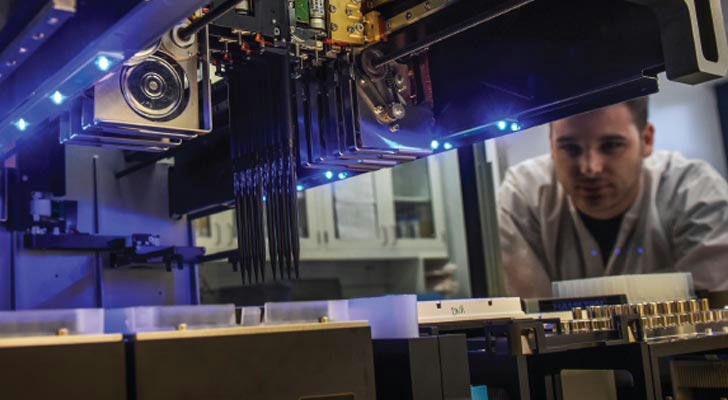Want a Reliable Skill? Repair Courses Are Especially Suitable for These 5 Types of People

As societies increasingly value technical and practical abilities, acquiring a hands-on skill has become a popular path for many individuals. Among various vocational training options, repair-related skills stand out for their broad applications, moderate entry requirements, and clear learning paths.
Repair courses typically include training in home appliance maintenance, electrical systems, plumbing, automotive servicing, and mobile device repair. These programs place more emphasis on practical ability than theoretical complexity, making them well-suited for learners at different life stages. Below is an analysis of five typical learner profiles that align particularly well with repair training, along with real-life case examples to illustrate the versatility and practicality of these skills.
1. Secondary School Graduates Seeking Practical Skills
For individuals who have completed basic education and chosen not to pursue further academic studies, repair skills offer a promising pathway. Many in this group are eager to enter the workforce and are open to hands-on learning environments.
For example, an 18-year-old student enrolled in a small appliance repair course after secondary school. With strong practical instincts, he completed six months of training and became proficient in diagnosing and fixing common issues with household items like rice cookers and fans. During his internship, he gained further experience and gradually built a personal client base.
Repair programs are closely aligned with everyday life needs and allow for flexible learning schedules, making them ideal for young learners looking to gain a stable skill foundation quickly.
2. Middle-Aged Workers Looking for a Career Shift
Many middle-aged individuals seek new career paths due to physical limitations or reduced job options in physically demanding sectors. For those with a background in manual labor, repair skills offer a practical and sustainable alternative.
A man in his early 40s who previously worked in outdoor construction transitioned to plumbing and electrical maintenance. After completing his training, he began offering on-site repair services within his community and gradually developed a reliable reputation.
This group tends to have a strong sense of responsibility, good manual skills, and discipline. Repair training is generally accessible regardless of age or educational background, allowing smooth career transitions during midlife.

3. Individuals Passionate About Technical Hobbies
Some people develop a fascination with electronics, mechanics, or circuits early on. They enjoy dismantling devices, studying how things work, and solving technical problems. Repair courses offer a structured pathway for these hobbyists to formalize their skills.
One learner, known for taking apart mobile phones and tablets since childhood, pursued a course in electronics and soldering. He soon gained the ability to troubleshoot and repair circuit boards, including minor component-level issues. His practical skills enabled him to assist friends and family, further enhancing his expertise.
For tech-inclined individuals, the structured learning environment allows them to turn passion into competence and apply their knowledge more broadly.
4. Veterans or Returning Migrant Workers
Veterans and returning migrant workers often seek stable livelihoods upon re-entering civilian or local life. Instead of launching resource-intensive ventures, acquiring a practical skill like repair work provides a more grounded and achievable option.
One such learner, having recently completed military service, enrolled in a plumbing and home repair program. Leveraging the discipline developed during his service, he mastered repair procedures quickly and began assisting neighbors with common electrical and plumbing issues. Over time, he earned a strong reputation for reliability and quality service.
This group is often highly disciplined and results-driven, qualities that align well with structured and standards-based repair training programs.
5. Women Interested in Gaining Practical Skills
As societal attitudes shift, more women are participating in technical training. In fact, some branches of repair work—such as small device maintenance or detailed inspections—benefit from the precision and consistency often associated with female learners.
One woman, originally working in household support services, took a course in basic electrical and small appliance repair. With attention to detail and a strong sense of service, she excelled in maintenance and cleaning processes. After completing the program, she integrated her new skills into her existing services, attracting a broader client base.
Female learners often demonstrate strong stability and service awareness, making them well-suited to repair sectors that require meticulous, hands-on work.

Practical Value and Flexibility of Repair Skills
One of the key advantages of repair training is its efficient skill transformation—learners can typically become job-ready within a relatively short period. These programs combine theoretical knowledge with practical applications, including tool handling, safety protocols, and common troubleshooting techniques.
Whether for professional advancement, personal development, or daily life application, repair skills have direct, real-world value. Learners can choose a specific area of focus based on their needs and continuously refine their abilities through practice.
Repair work is a classic example of a "skill honed through repetition"—technical requirements remain relatively stable over time, with ongoing growth stemming from experience and problem-solving ability. This makes it adaptable across various industries and regions.
Conclusion
Repair-related courses are gaining popularity because of their practicality and wide applicability. For individuals from various backgrounds—whether recent graduates, career changers, returning workers, or those with a passion for technology—structured repair training provides a solid path toward sustainable, hands-on work.
From teenagers seeking technical grounding to middle-aged individuals exploring second careers, and from veterans and returnees to women entering skilled trades, repair skills offer a reliable and actionable option for long-term personal and professional development.
In a diverse and evolving employment landscape, mastering a practical, dependable skill is a meaningful step toward stability and growth.
